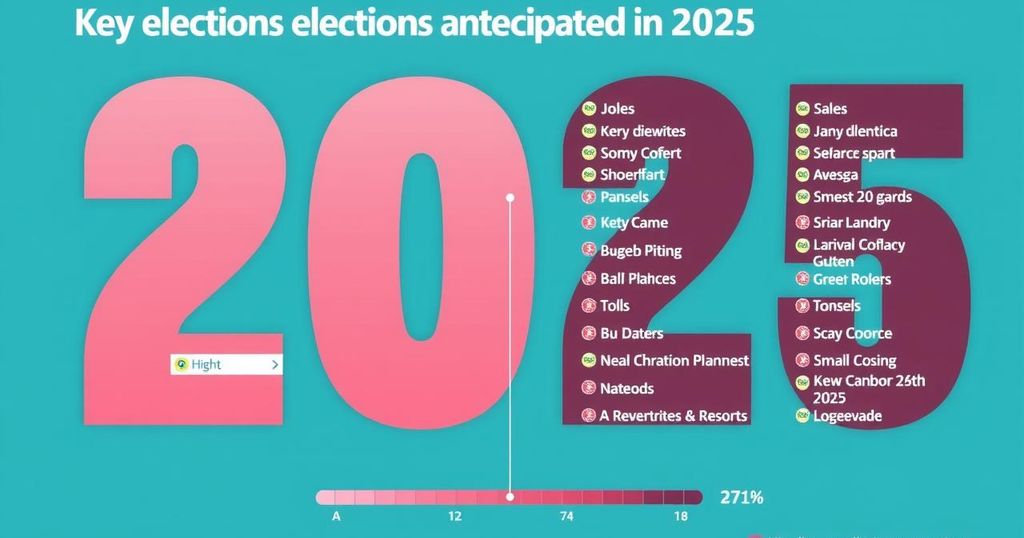Key Elections to Observe in 2025: Stakes and Implications in Belarus, Germany, and Beyond

The 2025 elections in Belarus, Germany, the Philippines, Canada, and Chile are poised to reflect ongoing political challenges, including authoritarian rule, unstable coalitions, and growing populist movements. Each election carries substantial implications for national and international policies, influenced by economic conditions and historical contexts.
The election landscape in 2025 presents notable events across five significant nations: Belarus, Germany, the Philippines, Canada, and Chile. Each election carries distinct implications amid ongoing global challenges such as inflation, shifting political sentiments towards the populist right, and geopolitical tensions. Experts have analyzed the stakes in these elections, forecasting outcomes amidst repressed opposition, government instability, and evolving public sentiments.
In Belarus, Alexander Lukashenko, the nation’s enduring authoritarian ruler, will seek another term on January 26, 2025, amid an environment absent of genuine opposition, with many citizens exiled or imprisoned following the 2020 elections. Lukashenko’s potential victory is expected to further align Belarus with Russia as a strategic ally. In Germany, a snap election is scheduled for February 23, 2025, driven by coalition turmoil, economic challenges, and heightened competition from right-wing political factions. Chancellor Scholz faces declining approval ratings and must navigate a complex electoral landscape with rising conservative opposition.
The Philippines will hold midterm elections on May 12, 2025, in which President Ferdinand Marcos Jr. is expected to maintain considerable influence over senatorial races, crucial for consolidating power against potential challenges, particularly from Vice President Sara Duterte. In Canada, a pre-October election may occur due to Prime Minister Justin Trudeau’s precarious coalition and plummeting poll numbers, as opposition from the Conservative Party grows amidst public dissatisfaction with inflation and government spending. Lastly, Chile will proceed to presidential elections on November 16, 2025, with the ruling coalition struggling to find a competitive candidate against a likely challenge from the opposition, reflecting a society recovering from political upheaval and economic strain.
These elections highlight the complexity of global political dynamics and the interplay of domestic and international pressures that voters will confront in 2025.
Upcoming elections in 2025 focus on several significant nations, each facing unique challenges. The elections will reflect broader global themes such as rising inflation, the resurgence of populist sentiments, and ongoing geopolitical conflicts. Historical contexts within each country, including authoritarian governance, coalition instability, and the aftermath of political upheaval, will play critical roles in shaping voter behavior and election outcomes. The analysis delves into the largest stakeholder interests, potential shifts in power, and implications for domestic and foreign policies.
The elections of 2025 across Belarus, Germany, the Philippines, Canada, and Chile reveal significant political stakes that extend beyond national borders. These events will likely influence the broader geopolitical landscape, especially concerning alliances and economic policies. Observers and voters must take into account the unique circumstances of each country while preparing for potential shifts in governance, public policy, and international relations. The outcomes will demonstrate how democratic processes respond to contemporary challenges and societal demands.
Original Source: cobbcountycourier.com








